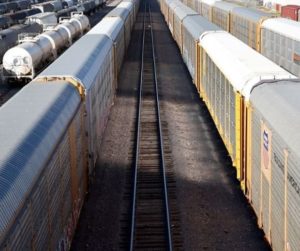The Senate passed a joint resolution to force railroad managers and workers to take a deal to prevent a strike. The House of Representatives voted 290-137 Wednesday, November 30, for H. J. 100, which imposes by force of law a tentative contract deal reached in September. President Biden is expected to sign the resolution quickly, averting the otherwise seemingly inevitable shutdown.

(Photo by Mario Tama/Getty Images)
In a separate 221-207 vote, the House also passed H. J. 119 on Wednesday, which requires rail companies to offer seven days of paid sick leave, a measure not yet endorsed by the White House. Senate Majority Leader Chuck Schumer (D-NY) announced earlier in the day Thursday, December 1, that the upper chamber would hold three votes on the issue.
First, the Sullivan resolution, which would simply delay things for 60 days, would be addressed. Second, the resolution granting seven paid days off. Finally, Schumer explained, the Senate would vote on the measure to forcibly implement the tentative agreement, which, without further amendment, does include three unpaid sick days so long as employers are provided with notice before the time is taken.
Of the three resolutions, only H. J. 100, the one to prohibit the strike and force both sides to an agreement, managed the 60-vote majority required to pass. It goes now to the president, who promised a quick signing to put any worries of a strike to rest. The dreaded economic disaster of backing up an already struggling supply chain has been averted – but it took the very heavy hand of Congress to do so.

